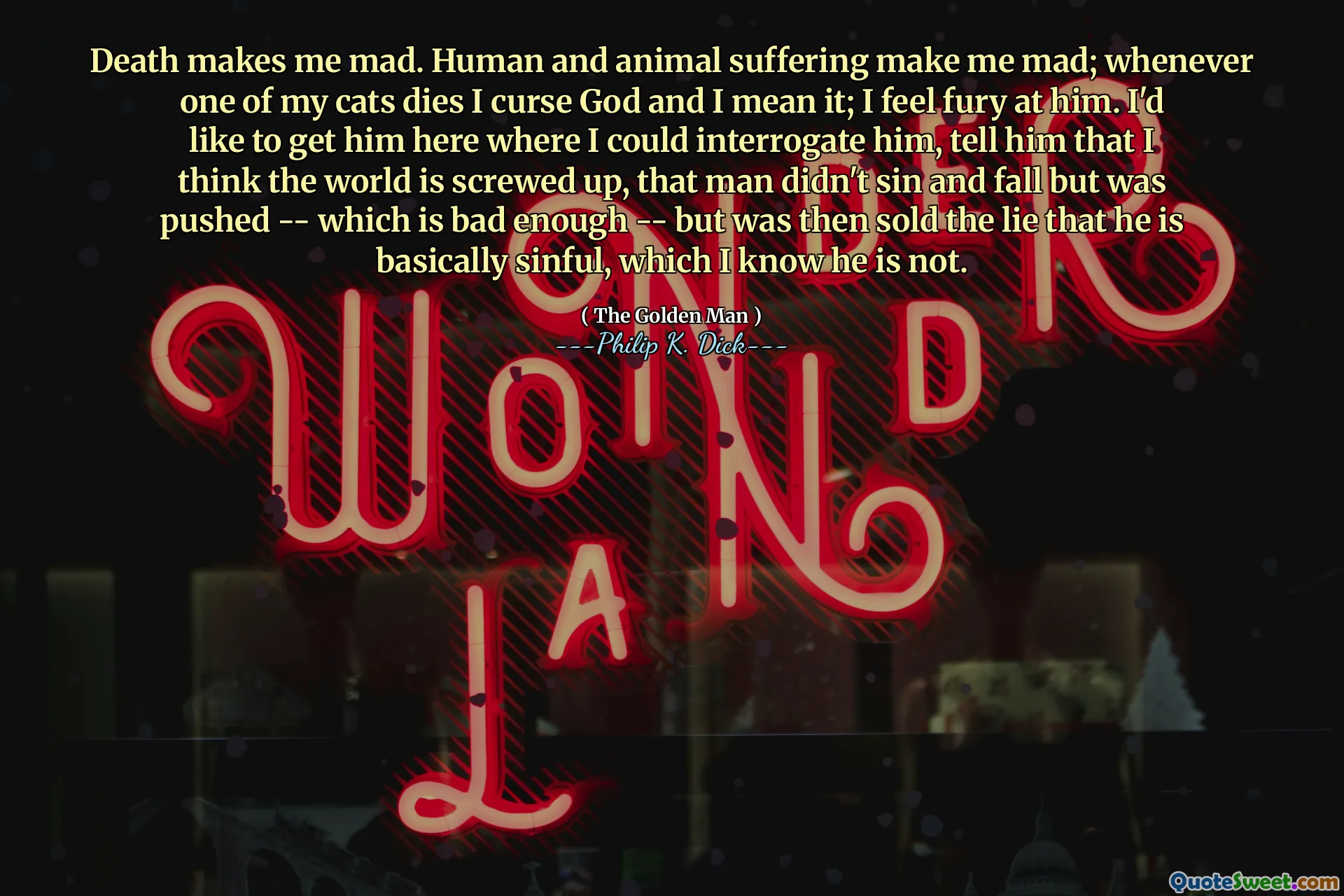
Death makes me mad. Human and animal suffering make me mad; whenever one of my cats dies I curse God and I mean it; I feel fury at him. I'd like to get him here where I could interrogate him, tell him that I think the world is screwed up, that man didn't sin and fall but was pushed -- which is bad enough -- but was then sold the lie that he is basically sinful, which I know he is not.
In Philip K. Dick's "The Golden Man," the narrator expresses profound anger towards the concept of death and the suffering of both humans and animals. The emotional turmoil he experiences when he loses a pet drives him to an intense confrontation with God, revealing his belief that divine negligence has contributed to the chaos and pain in the world. This perspective highlights a deep frustration with life’s injustices and a longing for accountability.
The narrator's fury transcends personal grief, pointing to a broader critique of predetermined sinfulness and suffering. He argues that humanity has been misled about its nature, suggesting that people are not inherently sinful but rather victims of circumstances that have driven them to despair. His desire to confront God reflects a yearning for understanding and a challenge to what he perceives as a flawed moral framework imposed upon humanity.







